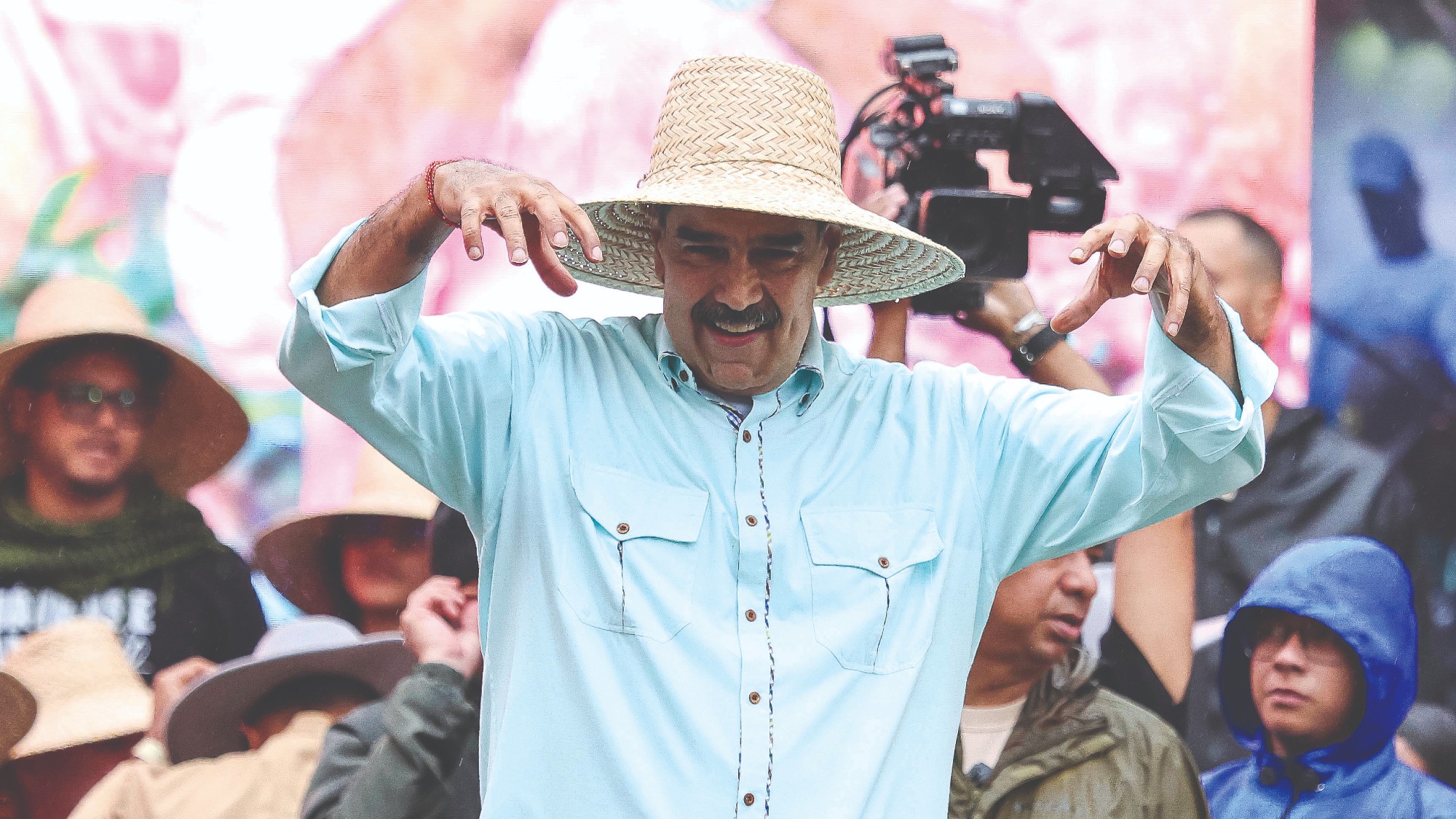Afghanistan's pre-election violence
What's behind it, and what does it mean for President Hamid Karzai's chances?
What happened
The Taliban launched a wave of violent attacks in Kabul two days ahead of Afghanistan's national elections. Insurgents have vowed to disrupt the voting. Kai Eide, the top U.N. official based in the country, said security problems could increase the chances of irregularities, but not enough to cast doubt on the legitimacy of the elections (Voice of America).
What the commentators said
The Week
Escape your echo chamber. Get the facts behind the news, plus analysis from multiple perspectives.

Sign up for The Week's Free Newsletters
From our morning news briefing to a weekly Good News Newsletter, get the best of The Week delivered directly to your inbox.
From our morning news briefing to a weekly Good News Newsletter, get the best of The Week delivered directly to your inbox.
The violence isn't doing President Hamid Karzai's re-election bid any good, said Carlotta Gall in The New York Times. "Whether and how to negotiate peace with the Taliban" is the main issue of the campaign. Polls show Karzai is still the favorite, but more and more people are questioning whether his government "is moving effectively toward persuading the Taliban to end their insurgency."
This the worst violence in Afghanistan since the war began eight years ago, said Samina Ahmed in The Boston Globe. Something must be done to ensure that Afghans feel safe enough to go out and vote, or the election will feel to many like a sham. "An election that is perceived as illegitimate could be the flashpoint for further destabilization of an already fragile state."
In 2004, America's support alone was enough to convey legitimacy, said Jean Mackenzie in Foreign Policy. Hamid Karzai was dismissed by some as a U.S. puppet, but that was okay because there was widespread hope that American aid would make things better. Now that Afghans' hopes have been dashed by the failure of promised assistance programs and by an "increasingly onerous" occupation, "the danger is that growing numbers of Afghans associate these evils with a defect in the democratic system of government."
The biggest problem in Afghanistan, said Selig S. Harrison in The New York Times, is "the growing alienation of the country’s largest ethnic group, the Pashtun tribes, who make up an estimated 42 percent of the population of 33 million." Many Pashtuns support the Taliban because they believe their old rivals, the Tajiks, have too much power in Kabul. Until that power is curbed, "no amount of American money or manpower will bring the insurgency to an end."
A free daily email with the biggest news stories of the day – and the best features from TheWeek.com
-
 The launch of the world’s first weight-loss pill
The launch of the world’s first weight-loss pillSpeed Read Novo Nordisk and Eli Lilly have been racing to release the first GLP-1 pill
-
 Six sensational hotels to discover in 2026
Six sensational hotels to discover in 2026The Week Recommends From a rainforest lodge to a fashionable address in Manhattan – here are six hotels that travel journalists recommend for this year
-
 Maduro’s capture: two hours that shook the world
Maduro’s capture: two hours that shook the worldTalking Point Evoking memories of the US assault on Panama in 1989, the manoeuvre is being described as the fastest regime change in history
-
 The billionaires’ wealth tax: a catastrophe for California?
The billionaires’ wealth tax: a catastrophe for California?Talking Point Peter Thiel and Larry Page preparing to change state residency
-
 Bari Weiss’ ‘60 Minutes’ scandal is about more than one report
Bari Weiss’ ‘60 Minutes’ scandal is about more than one reportIN THE SPOTLIGHT By blocking an approved segment on a controversial prison holding US deportees in El Salvador, the editor-in-chief of CBS News has become the main story
-
 Has Zohran Mamdani shown the Democrats how to win again?
Has Zohran Mamdani shown the Democrats how to win again?Today’s Big Question New York City mayoral election touted as victory for left-wing populists but moderate centrist wins elsewhere present more complex path for Democratic Party
-
 Millions turn out for anti-Trump ‘No Kings’ rallies
Millions turn out for anti-Trump ‘No Kings’ ralliesSpeed Read An estimated 7 million people participated, 2 million more than at the first ‘No Kings’ protest in June
-
 Ghislaine Maxwell: angling for a Trump pardon
Ghislaine Maxwell: angling for a Trump pardonTalking Point Convicted sex trafficker's testimony could shed new light on president's links to Jeffrey Epstein
-
 The last words and final moments of 40 presidents
The last words and final moments of 40 presidentsThe Explainer Some are eloquent quotes worthy of the holders of the highest office in the nation, and others... aren't
-
 The JFK files: the truth at last?
The JFK files: the truth at last?In The Spotlight More than 64,000 previously classified documents relating the 1963 assassination of John F. Kennedy have been released by the Trump administration
-
 'Seriously, not literally': how should the world take Donald Trump?
'Seriously, not literally': how should the world take Donald Trump?Today's big question White House rhetoric and reality look likely to become increasingly blurred